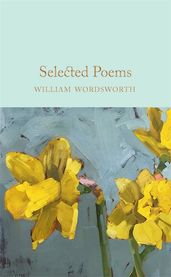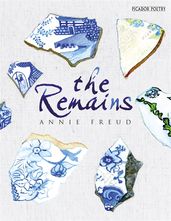Poets share their favourite poems of hope and strength
Discover the inspiring poems that contemporary poets have turned to during the pandemic.

In times of uncertainty and disquiet, many of us find ourselves turning to poetry as a source of comfort and hope. Here, some of our poets tell us which verses they've been turning to to lift their spirits and provide some food for thought on the type of future we would like to build once the current storm has passed.
Discover our edit of the best poetry books.
'The Hopes' by Colette Bryce, chosen by Ian Duhig
Maybe an Irish background makes you appreciate the sight of cranes in a city, signalling wealth and perhaps employment. Working on sites, we knew crane-drivers were a breed apart in their tiny glass cells in the sky. They could see a more distant horizon, like Colette Bryce’s poem. When you raise your eyes, sometimes your heart follows.
The Hopes
They extend above the houses
like mechanical giraffes.
Dignified,
they are there for a reason.
Cables hang
from their heads like harnesses.
Behind them, the sky is unusually
blue and clear
for a month so late
in the year. Don’t give up.
Taken from Self Portrait in the Dark by Colette Bryce
Selected Poems
by Colette Bryce
Colette Bryce has firmly consolidated her position as one of the most important Irish poets of her generation. With an astoundingly acute ear and eye, Bryce captures the fault-lines of nation and family, of love and tribal loyalty, of landscape and borders. Selected Poems draws together the best of Bryce’s poetry and highlights the range and sweep of her work.
‘The History Teacher’ by Billy Collins, chosen by John Glenday
Although it’s very funny, as his work so often is, and reads a bit like a The One Show special feature on ‘Milestones in Human History,’ there is always another message in Collins’ work, and in this case perhaps it’s a lighthearted reworking of Santayana’s ’Those who do not learn from history are doomed to repeat it.’
The History Teacher
Trying to protect his student’s innocence
he told them the Ice Age was really just
the Chilly Age, a period of a million years
when everyone had to wear sweaters.
And the Stone Age became the Gravel Age,
named after the long driveways of the time.
The Spanish Inquisition was nothing more
than an outbreak of questions such as
“How far is it from here to Madrid?”
“What do you call the matador’s hat?”
The War of the Roses took place in a garden,
and the Enola Gay dropped one tiny atom
on Japan.
The children would leave his classroom
for the playground and torment the weak
and the smart,
mussing up their hair and breaking their glasses,
while he gathered his notes and walked home
past flower beds and white picket fences,
wondering if they would believe that soldiers
in the Boer War told long, rambling stories
designed to make the enemy nod off.
Taken from Taking off Emily Dickinson’s Clothes by Billy Collins
Taking Off Emily Dickinson's Clothes
by Billy Collins
Described by Carol Ann Duffy as ‘one of my favourite poets in the world,’ Billy Collins is a writer of immense grace and humanity. He is also very funny. In his poetry, Billy shows how the great forces of history and nature converge on the tiniest details of our lives – and in doing so presents them in a new radiance.
‘Love After Love�’ by Derek Walcott, chosen by Safiya Sinclair
This poem is a balm I return to often, heartened by how candidly it invites the reader to find solace in solitude. To see there is luminous beauty in having time with oneself, being able to slip once more into the forgotten nectar of your old life, and drink. Which makes it the perfect poem to revisit in this time of great isolation, when we must spend these undressed hours with ourselves, and try to make a daily feast of it.
Love After Love
The time will come
when, with elation
you will greet yourself arriving
at your own door, in your own mirror
and each will smile at the other's welcome,
‘The skating scene from ‘The Prelude: Book I’ by William Wordsworth, chosen by Sean O’Brien
Among the many things I admire in this famous passage are the controlled energy of the verse movement, the clarity of the poet's attention to the remembered event, and the sense of unencumbered liberty enjoyed for its own sake. Together they evoke that period of youth when the world seems ready to accommodate us, and life's potential looks unlimited. The whole thing is remarkably vivid, and as exact as the line drawn by the blade of a skate. Wallace Stevens said that poetry must give pleasure. Here Wordsworth can be found agreeing.
Extract from The Prelude: Book I
And in the frosty season, when the sun
Was set, and visible for many a mile
The cottage windows blazed through twilight gloom,
I heeded not their summons: happy time
It was indeed for all of us – for me
It was a time of rapture! Clear and loud
The village clock tolled six, – I wheeled about,
Proud and exulting like an untired horse
That cares not for his home. All shod with steel,
We hissed along the polished ice in games
Confederate, imitative of the chase
And woodland pleasures, – the resounding horn,
The pack loud chiming, and the hunted hare.
So through the darkness and the cold we flew,
And not a voice was idle; with the din
Smitten, the precipices rang aloud;
The leafless trees and every icy crag
Tinkled like iron; while far distant hills
Into the tumult sent an alien sound
Of melancholy not unnoticed, while the stars
Eastward were sparkling clear, and in the west
The orange sky of evening died away.
Not seldom from the uproar I retired
Into a silent bay, or sportively
Glanced sideway, leaving the tumultuous throng,
To cut across the reflex of a star
That fled, and, flying still before me, gleamed
Upon the glassy plain; and oftentimes,
When we had given our bodies to the wind,
And all the shadowy banks on either side
Came sweeping through the darkness, spinning still
The rapid line of motion, then at once
Have I, reclining back upon my heels,
Stopped short; yet still the solitary cliffs
Wheeled by me – even as if the earth had rolled
With visible motion her diurnal round!
Behind me did they stretch in solemn train,
Feebler and feebler, and I stood and watched
Till all was tranquil as a dreamless sleep.
Taken from The Prelude by William Wordsworth
Selected Poems
by William Wordsworth
A pioneer of the Romantic movement, William Wordsworth is renowned for his poetry about the natural world and the depth of human emotion. This collection brings together some of Wordsworth’s most acclaimed and influential works, such as ‘I Wandered Lonely as a Cloud’, ‘To a Skylark’ and ‘Tintern Abbey’.
'The Room That Isn't There' by Annie Freud, chosen by Rachael Boast
Annie Freud's work offers an irresistible joie de vivre, something that can be very difficult to maintain in lockdown. Whilst this poem describes a dream many of us may have had, it now takes on a new significance. Some of us may be confined to one room, some of us to a couple. Either way, we are forced into being resourceful as a means of coping with limitation. The idea of a resource, or perhaps a sanctuary, we didn't know we had comes to our rescue in the face of this big ask.
The Room That Isn’t There
for Jacqui Saphra
Sometimes I dream I’m in a room that isn’t there.
The many years I’ve lived here and not noticed it before –
an unexpected boon! Such blessed emptiness!
It’s going to change my life. What shall I use it for?
And grey the morning comes; I wake. The rooms are
as they were, each one with its function and its mess.
And all this time, it dwells behind the door, a simulacrum
of my mind, my womb, my unlived life, my life to come . . .
or could it be life’s end that brings me here, treading
its naked boards, sitting at a table on a wooden chair,
and rushing to the window to take in the view,
the trees outside, the Spring, the blossom on the grass.
Taken from The Remains by Annie Freud
The Remains
by Annie Freud
The Remains is concerned with what is left when everything seems broken or lost - and the new and unexpected things that happen when they are found again. Beautifully illustrated in full colour by the poet herself, this is a powerful collection of consolation and surprise.
A haiku by Yosa Buson, chosen by Richard Meier
This haiku, by the 18th century Japanese poet and painter Yosa Buson, neatly speaks to the enforced isolation which so many people are currently having to endure. It is a situation we would not have chosen. Yet despite this, or because of it, the poems suggests, new connections to the world around us can perhaps be forged, and a little solace found.
Haiku
well now,
if I am to be alone
I'll take the moon as a friend






